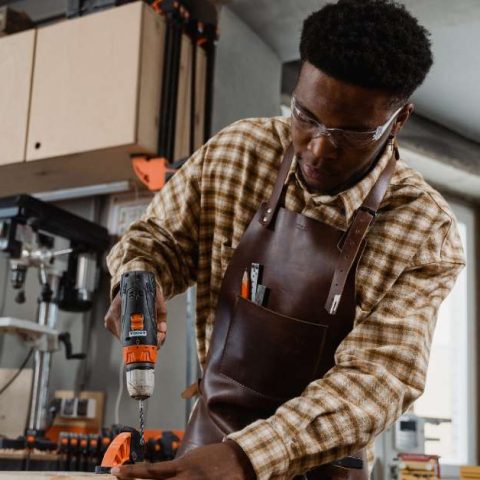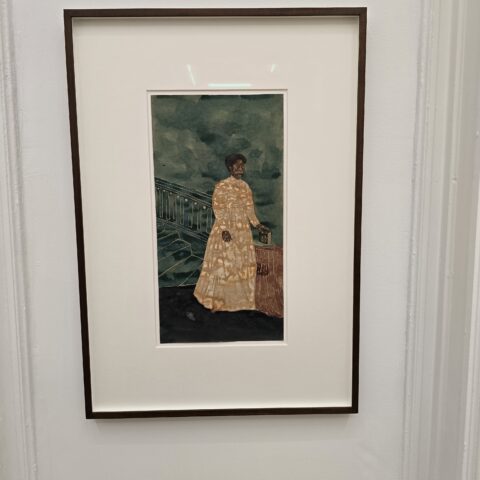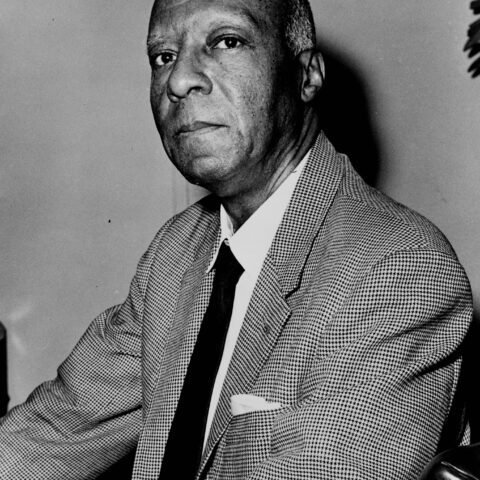THAT SO SMOOTH, TOO SMOOTH SOUND
By April Aguirre
Thursday, June 19, 2008.
Everywhere you look, from Lagos to London, DJs are trading in their record crates for laptops. The popularity of the DJ software program Serato Scratch Live is making a vinyl record sighting in a club an ever-rarer thing.
With Serato, introduced by New Zealand-based Serato Audio Research in 2004, DJs use digital audio files on their turntables, instead of records. The DJ who used to lug pounds of records to gigs can now carry a whole music library in a messenger bag.
Once “anti-digital anything,” Sean Rowlands, a New York City DJ for 11 years, now combines his love for vinyl with Serato technology. He has converted his 5,000-plus records into MP3 files, works off his iTunes, then scratches on the “control record” — a blank record that reads the digital signal sent through the audio file.
Though reluctant at first, Rowlands found Serato’s advantages too strong to pass up. He can use Serato as a recording studio, while preserving his record collection.
“I’m not going to bring a $300 record to a dingy bar and have some guy spill his drink on it,” he said.
Weekends formerly devoted to record scavenging can be spent booking more shows. Forget the cost of replacing damaged goods – an audio file can’t be scratched.
As the cheaper, more efficient Serato method becomes the norm, vinyl enthusiasts are forced to adjust. So are DJ schools, which have added courses like Digital DJ 101.
“I know a lot of working DJs using Serato because they don’t want to carry 15 crates of records. Yet they’re still sad, because coming in here becomes a part of the experience,” said Seth Yamasaki, co-manager of the record shop A-1 on New York City’s Lower East Side, one of the few DJ-centric record stores left in New York.
Clientele has predictably dropped, as record companies now email MP3s directly to the DJs. According to Nielsen SoundScan, vinyl sales nationally fell 43 percent between 2000 and 2006.
Yet vinyl still offers superior sound quality. Sound engineer Luis Ramirez says the glossier MP3s on Serato cut certain frequencies from vinyl analog sound waves.
“You lose warmth right off the bat, because part of the vinyl character is hearing the needle on the vinyl, that crackling,” he said.
“Using Serato software instead of traditional vinyl is like cooking an omelet in the microwave instead of on the stove,” said former A-1 employee Jeremy Delon. “It’s practical, but it loses flavor.”
Scratch Academy in New York City, the first DJ school in the nation, has likewise adapted to the times. While core courses are still taught on traditional turntables, the two digital classes are popular.
“The courses are getting more popular, but it is difficult for somebody starting out to front $500 for Serato,” said academy manager Josh Novicki, noting just one of the drawbacks.
Novicki, a DJ himself, is a vinyl enthusiast, but supports Serato because it lets him take the core of his 10,000-selection collection anywhere. Despite a recent scare, when his system crashed in the middle of high-profile party, Novicki praises the program for introducing DJ-ing to a younger set, and for including kids who don’t have a record store nearby but do have access to a computer.
A dedicated few refuse to let go of vinyl. Though Michael Buchanan, better known in his Los Angeles and Detroit stomping grounds as DJ House Shoes, saw three sets of records destroyed last time he traveled overseas, he’s still adamantly anti-Serato.
“It’s becoming way too convenient for people who shouldn’t be DJ-ing to do this,” he said. “Being a DJ has been relegated to being a robot.”
In his view, going to the record store at least three times a week, carrying crates and sifting frantically through one’s collection while onstage is all part the grit his line of work requires.
In fact, almost everyone interviewed for this story owned up to at least a touch of nostalgia. DJ House Shoes knows he’s a dying breed, but he’d rather die happy than live falsely. “I’ll be the last one if I have to,” he said, “carrying these records until I can’t carry no more.”
April Aguirre is a journalism student at New York University, she can be reached at aprilaguirre@gmail.com
Please email comments to comments@thenewblackmagazine.com






Great, thanks for sharing this blog.Thanks Again.
Great, thanks for sharing this blog post.Really thank you! Fantastic.
I truly appreciate this blog post.Thanks Again. Fantastic.
I like it when people come together and share ideas. Great blog, continue the good work.
tadalafil over the counter uk tadalafil soft gel capsule – tadalafil tablets
Usually I do not read article on blogs, but I would like to say that this write-upvery pressured me to check out and do so!Your writing taste has been amazed me. Thanks, quite nice post.
stromectol dosage for scabies atwoods ivermectin
This is one awesome article.Much thanks again. Keep writing.
I truly appreciate this article post. Great.
I appreciate you sharing this blog. Will read on…
Very informative post.Really thank you! Really Great.
Fantastic article.Thanks Again. Will read on…
Thanks-a-mundo for the blog.Thanks Again. Really Cool.
I really liked your blog.Much thanks again. Will read on…
Thanks for the post.Really looking forward to read more. Fantastic.
Appreciate you sharing, great article. Cool.
Heya i’m for the primary time here. I foundthis board and I in finding It truly useful & it helped me out much.I hope to present one thing back and aid others such as youhelped me.
Im obliged for the article. Fantastic.
Thank you ever so for you article post.Really looking forward to read more. Cool.
I value the blog post.Thanks Again. Really Great.
Very good article post.Thanks Again. Awesome.
Muchos Gracias for your blog post.Much thanks again. Will read on…
Awesome blog article.Really thank you! Keep writing.
Really appreciate you sharing this blog article.Much thanks again. Cool.
Very informative post.Thanks Again. Will read on…
I value the article. Awesome.
Enjoyed every bit of your blog.Thanks Again. Fantastic.
plaquenil anti inflammatory chloroquine uk is plaquenil toxic to the liver what kind of antibiotic is plaquenil